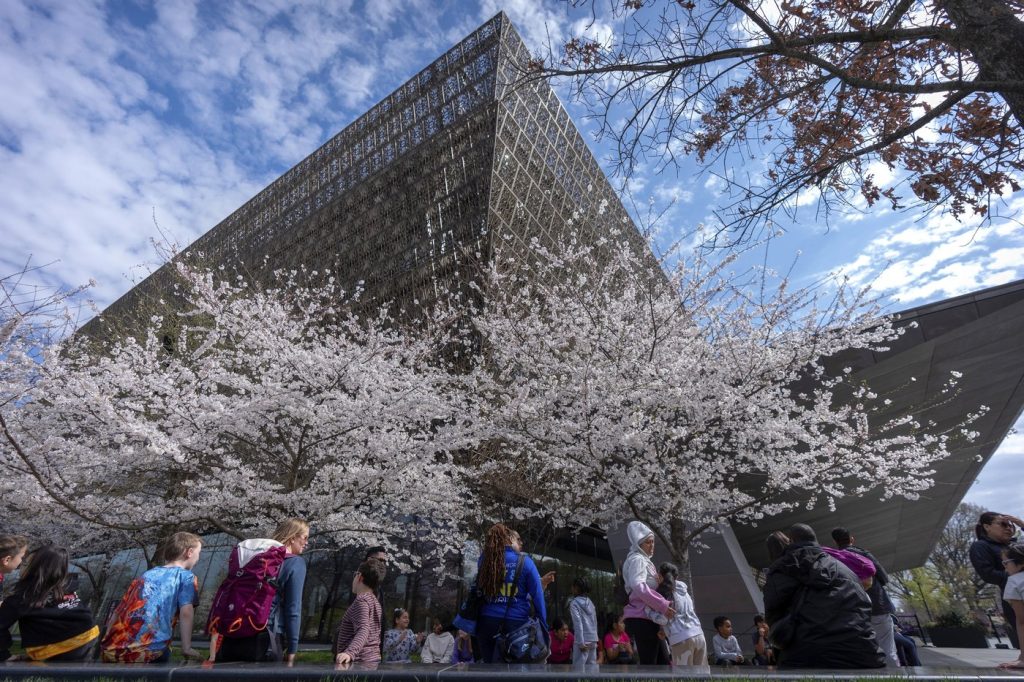WASHINGTON (AP) – A veteran activist from the Civil Rights Movement, Rev. Amos C. Brown, has been informed by the Smithsonian Institution that the items he loaned to the National Museum of African American History and Culture might be returned. This notification comes amid a potential review of the museum's collections directed by President Donald Trump.
Rev. Brown, who is the pastor of Third Baptist Church in San Francisco, loaned two significant books for display at the museum since its opening nearly a decade ago. One of the items is a rare edition of “The History of the Negro Race in America” by George Washington Williams, published in 1880, which is recognized as one of the first comprehensive documents addressing Black American history and racism in the U.S. The other item is a Bible that Brown carried during civil rights protests alongside the iconic Rev. Martin Luther King Jr.
The museum's initial reasoning for the return of these artifacts raised concerns that the Trump administration was starting to implement visible changes to what is regarded as a crucial institution of Black American culture. However, the Smithsonian promptly clarified that reports of removed exhibits regarding the civil rights struggle are false. The White House has not commented on the matter.
The possibility of reform at the African American museum prompted strong reactions from Democratic lawmakers, historians, civil rights advocates, and educational supporters. Many plan to gather for demonstrations in support of the museum in Washington, D.C. Rev. Brown received an email last month from a Smithsonian official, suggesting that his items would be returned due to preservation concerns related to museum lighting. Brown deemed the justification “a flimsy excuse for a museum.”
Following this communication, a different official expressed regret to Brown over a “misunderstanding,” stating that museum archivists will refer the matter to a panel for reevaluation, which would include a variety of historical artifacts. Smithsonian officials did not confirm whether such a panel has been established.
Smithsonian representatives characterized the situation as routine, explaining that the institution often returns loaned artifacts to adhere to loan agreements and to maintain high standards of care and preservation. They emphasized that any claims of removals for reasons apart from these standard museum practices are false.
Concerns heightened after Trump signed an executive order on March 27 titled “Restoring Truth and Sanity to American History,” which criticized the Smithsonian for allegedly promoting a divisive, race-centered ideology. The executive order appointed Vice President JD Vance and senior White House aide Lindsey Halligan to oversee the removal of what the administration deems improper ideology from Smithsonian properties, which includes numerous museums and the National Zoo.
Reactions from lawmakers and civil rights activists suggest fear that this executive order could lead to the removal of artifacts, exhibits, or research that contradicts the Trump administration’s interpretation of history. House Minority Leader Hakeem Jeffries sent a letter to Chief Justice John Roberts, warning that the order seeks to “whitewash our history” and reminiscent of efforts by totalitarian regimes in the 20th century.
Rev. Brown expressed disappointment in the Smithsonian for its lack of transparency regarding potential changes. He emphasized the importance of preserving the truth about history and called for respectful discourse with those in power. As organizers anticipate protests and demonstrations, a coalition of over three dozen groups has launched a “Freedom to Learn” campaign, including rallies at the museum.
The National Museum of African American History and Culture, which opened in 2016, houses over 40,000 artifacts that document over 400 years of African American history. Its exhibits cover diverse topics, including everyday life and culture, the contributions of African Americans to larger American society, and the historical injustices of slavery and discrimination. Rev. Brown, who has a long history as a civil rights activist alongside figures like King, criticized the secrecy surrounding comments about the museum's future.











